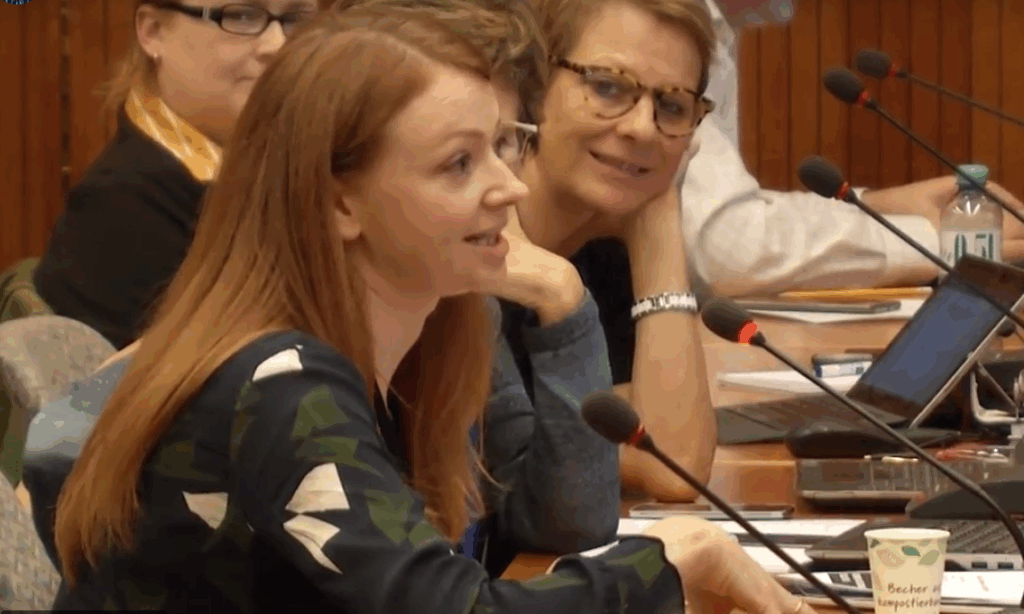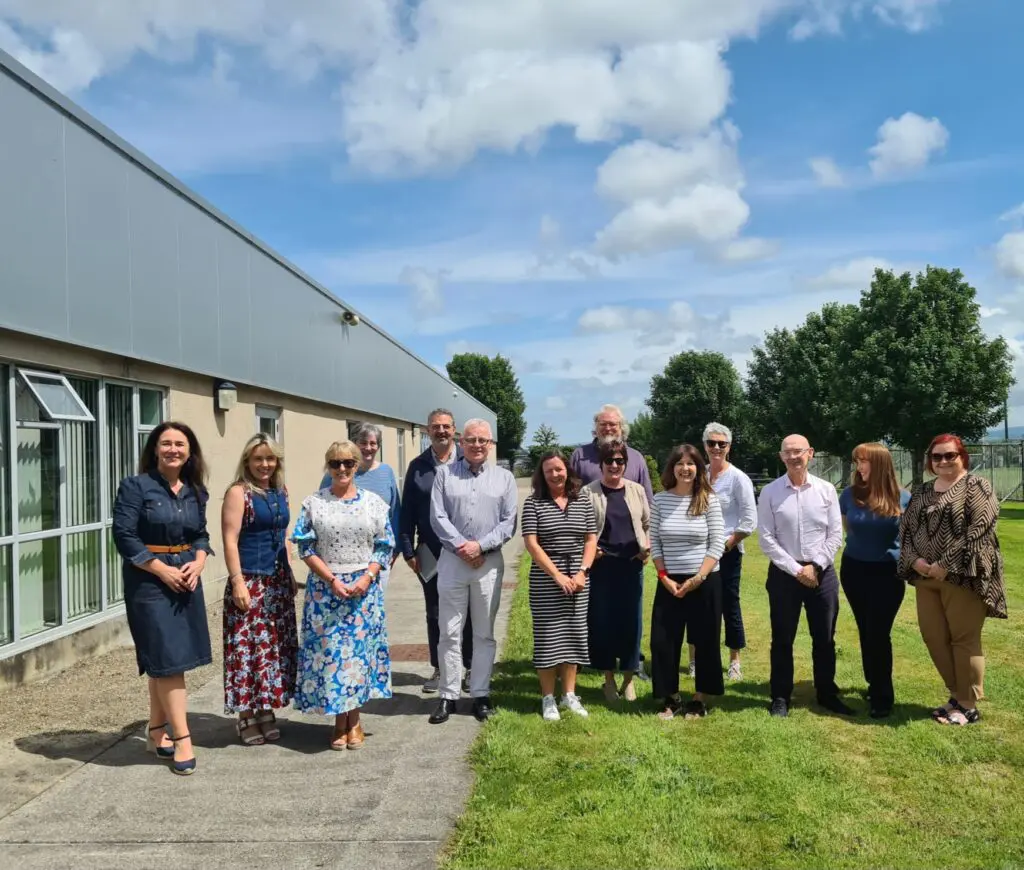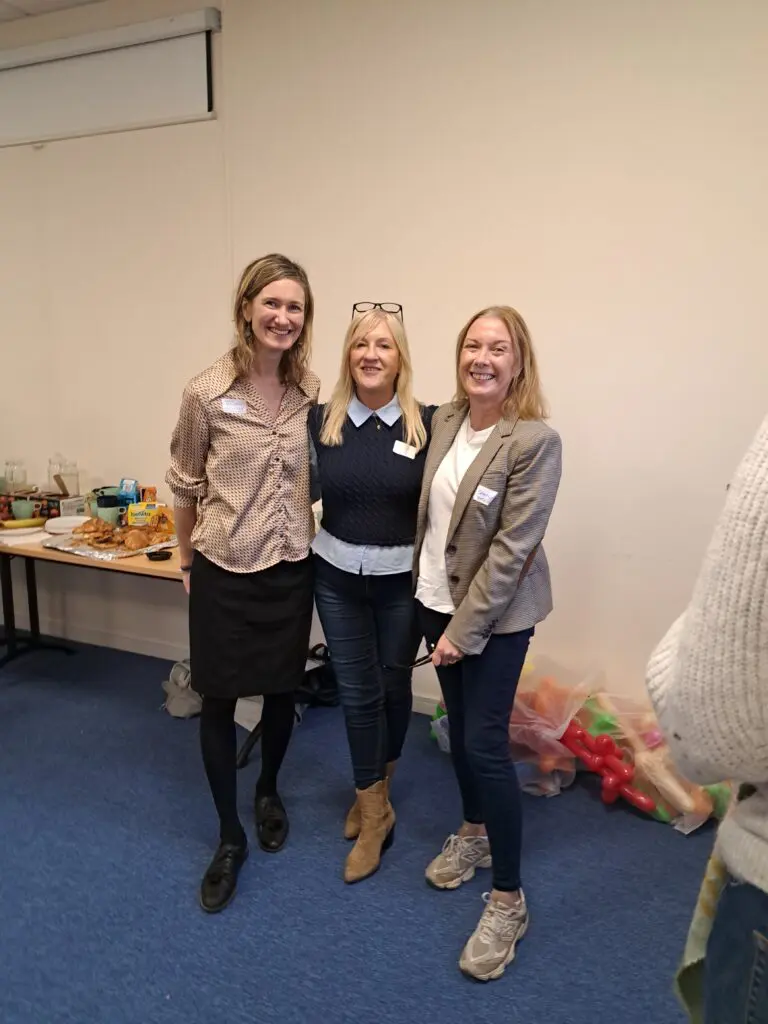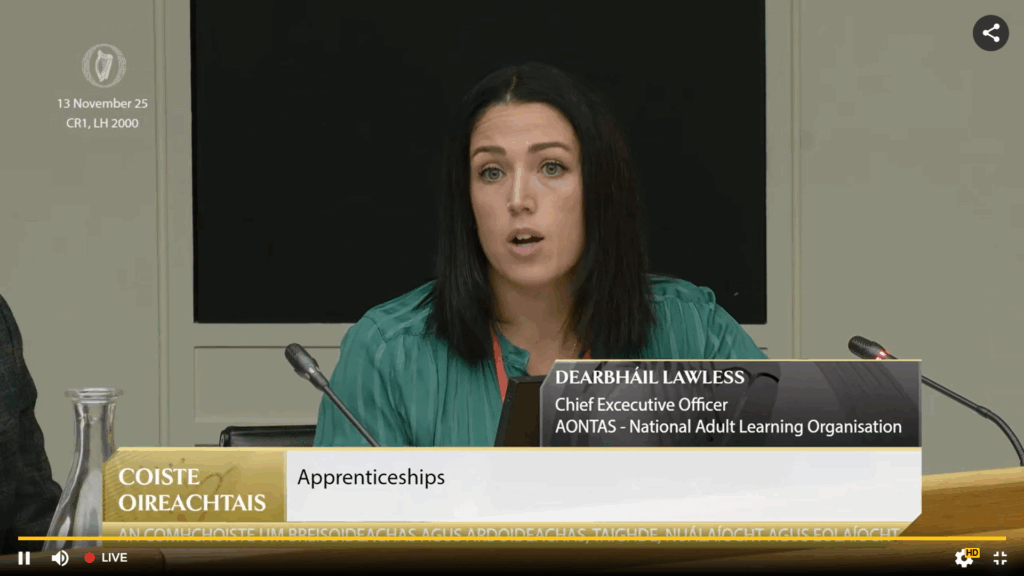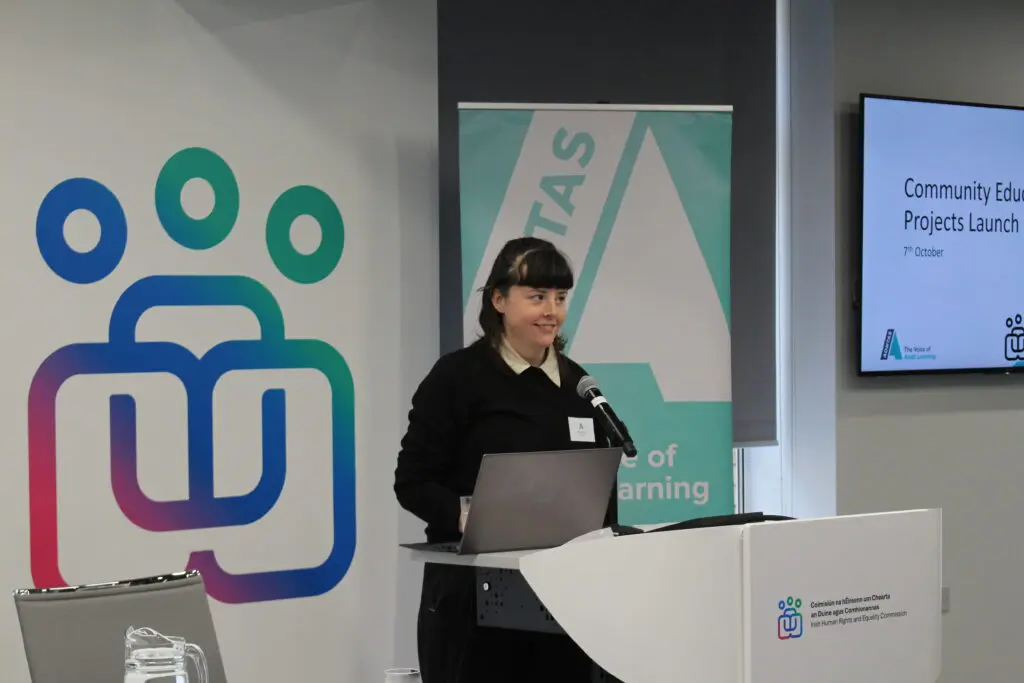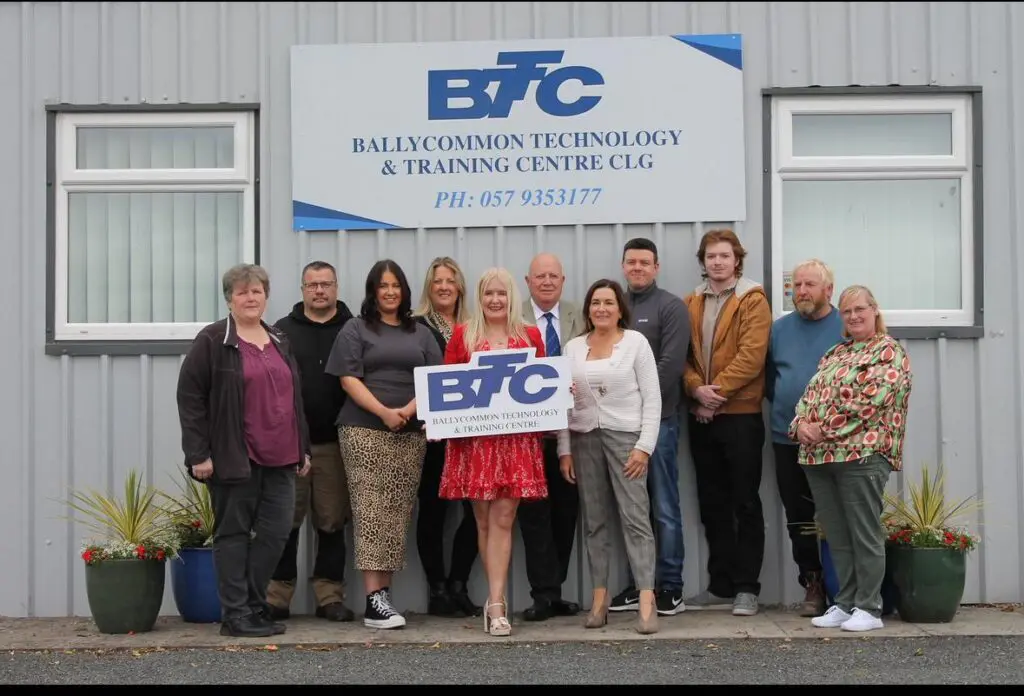There was a very strong focus on apprenticeships; raising the important role which adult and community education can play in supporting people to access apprenticeships -particularly for those who are underrepresented such as women, adults over 23, and many more who are excluded from, or require additional supports to, participating in STEM education and training which involves maths.
A significant proportion of the conference highlighted the tensions that can exist between FET/VET for labour market purposes versus the broader role of learning adopted by EU VET policy; especially the European Pillar of Social Rights which has as its first principle the right to education, training and lifelong learning.
However, consensus on the imperatives for education policy were clearly evident across presentations:
- There is a need for a variety of learning pathways that involves the validation of ‘micro-credentials’ via ‘online-anytime-anywhere learning’ that carries the level of prestige and form of accreditation which supports learners to achieve sustainable employment.
- There was recognition of learner voice with a high value placed on listening to learners, capturing their experiences and harnessing this to effectively influence policy at local and national level. For example, consensus was that learners must increasingly be part of developing curricula and articulating their issues to broadly support retention and to engender FET learner identity.
- People need the opportunity to gain cognitive, sociobehavioural, transversal, and critical thinking skills; as much as they need quality work experience; access to courses that bridge the theory-practice gap by combining academic theory with the practical application of knowledge; ongoing learning opportunities that meet workers’ needs; and supports for CPD as required by their employer.
- The speed of change in the world of work requires learning systems that can adapt and keep pace.
Going forward: adult learning within a divergent policy landscape
Ideological differences on the role of education with society and the very nature of adult learning manifested itself in discussions on how we understand the purpose of learning, what courses get funded, and by whom, and what is considered non-vocational, ie learning that is not directly focused on benefiting various economic sectors.
AONTAS members say that:
- Only accredited courses get funded, but it has been widely acknowledged that non-accredited courses are vital for that initial engagement with educationally disadvantaged learners.
- The outcomes of learning are measured too narrowly using a certain catalogue of indicators and standards that are simply not fit for purpose (for example, the vocabulary around progression, employability statements and so on). As we know, a person’s ability to gain employment is not solely related to the skill set they possesses, it also includes their credentials, employment history, ability to present at and perform during interviews. Furthermore, underpinning and throughout the learning-employability lifecourse of any learner is that they must first be able to meet their basic needs (from housing and healthcare to safety and social supports). Determining the success of a course based on progression alone puts a massively disproportionate expectation on only one piece of a much larger puzzle that makes up the bigger picture of supporting someone’s progression to employment.
- There is often an inaccurate assumption that non-vocational courses don’t support progression to employment. However personal and professional development mutually emerge and this can act as the empowering catalyst for many learners to enter the labour force.
EC-OECD Forum – Making adult learning work for the future
At the EC-OECD Forum Dr Byron Auguste provided a very interesting keynote address where he covered ‘megatrends’ and tools needed to address adult learning challenges for the future. The stark statistics offered by Dr Auguste demonstrated that social mobility takes time, even lifetimes. He even quoted Ireland as an example where it has been shown that it can take 5 generations for educational opportunities and outcomes to have an impact on people’s lives.
Ultimately, everyone wants and knows that adult learning plays an important part in supporting people to find and retain sustainable employment. Views on how we all get there may differ. Nevertheless, at this year’s European Vocational Skills Week in Vienna the general consensus was that learners need to be at the centre of the system. People are agents of their own change, and as Dr Auguste noted: people are not problems – they are the answers, however giving the opportunity for all to engage in learning requires a holistic not a standardised approach.
